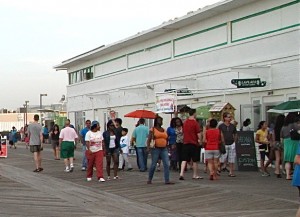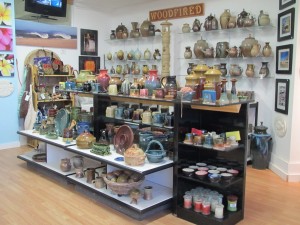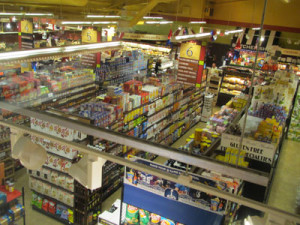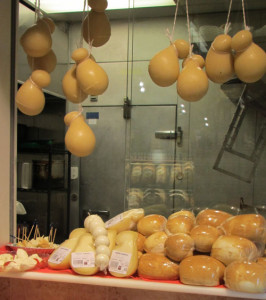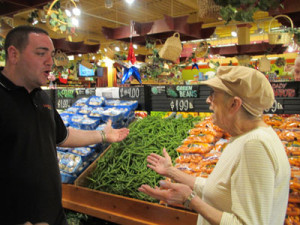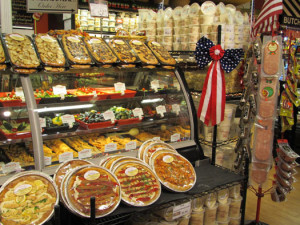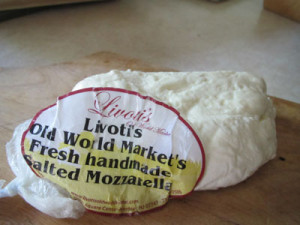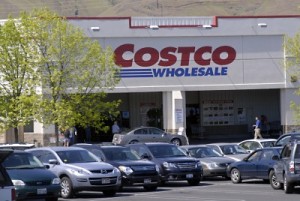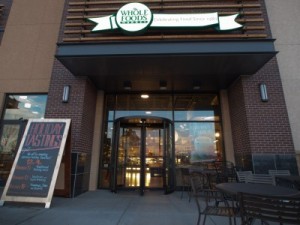Will Asbury Park’s long-awaited, oft-failed renaissance finally happen this time?
If it does, Greg LaPlaca, owner of LaPlaca Pottery Works, will be one of the people to thank. He’s been selling pottery and other handmade goods for eight years in Asbury and he is a proud member of this “little community.”
“We need to keep it local, boutiquey,” says the Belmar-born potter. “That’s what makes it Asbury. I know a lot of my customers.” If chain stores move in to the town, “Why come here over any other beach?”
The entrepreneur, teacher and artist sold his wood-fired and pit-fired creations in Asbury Park and Point Pleasant until Superstorm Sandy rolled through in October 2012.
He’d moved his Asbury store from Cookman Avenue to the boardwalk in 2007, then got clobbered by Sandy five years later. After the store flooded, he was forced to rip out the sheetrock and rebuild. Insurance covered nothing because the damage came from the ocean, excluded from his coverage, which he’s since cancelled. No power and a curfew shut down his pottery classes in Point Pleasant. He now uses his Point location as a workshop. Asbury, though, is completely open, and LaPlaca is hoping for a strong summer season to make up for the many lost months of traffic while the boardwalk was closed.
“The worst thing was the town put a fence up and left it, putting me out of business until April,” he said. He had some tables in convention hall, but still lost Christmas business.
LaPlaca’s store was recognized as “best of NJ” for gift shops by New Jersey Monthly magazine in 2011 and 2012 and by the Asbury Park Press Readers’ Choice contest for favorite art gallery in 2012. Ninety percent of the store’s offerings he makes himself. His mother produces quilted and crocheted bags that LaPlaca sells along with his seaglass jewelry, (Asbury Park icon) ‘Tillie’ memorabilia and his own photography. Novelty soaps come from visits to a brother living in Hawaii.
One customer favorite has a rich Southern history. “Ugly Jugs” were created in the 19th century with human-looking eyeballs and teeth to scare children away from the moonshine typically stored in them. Pottery with faces dates back to Egyptian times, LaPlaca says.
LaPlaca has tried to create things made to order, but quickly felt constrained by that. “I’m always changing what I do; I get bored,” he says. Besides, creating copies is not the point. “All my stuff is unique.”
“I’m a handmade in America potter. I can’t compete with imports, it cheapens everything else in the store.” He tries to keep his prices affordable. A mug is $20 and a majority of the store’s items cost less than $50, he adds, and many less than $10.
LaPlaca says he’s committed to his beach location, although others questioned his decision to locate in a tourist town even before the storm and the last two months of erratic weather have been rough on his business.
He loves being there anyway.
“We all know each other here, and a few of us who were early got the ball rolling,” he says of his fellow business owners. “We’re working so hard and we took our lumps. It’s a critical summer for us. We have a real community.”
He’s confident that this time, Asbury Park will make it back. “There’s way too much momentum this time.”
LAPLACA POTTERY WORKS, ASBURY PARK
1100 BOARDWALK
SUITE C
ASBURY PARK, NJ 07712

